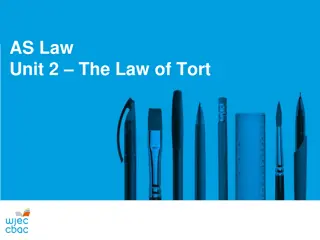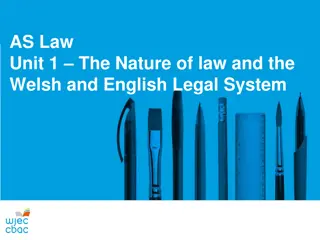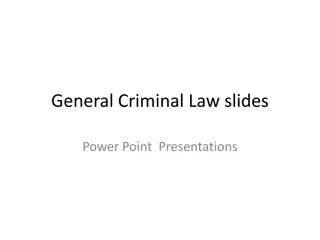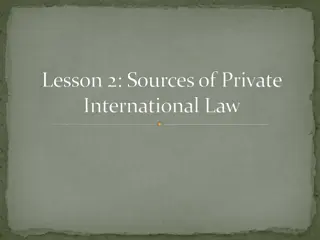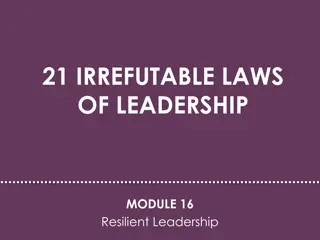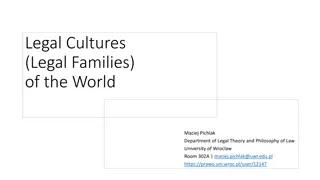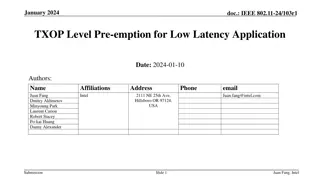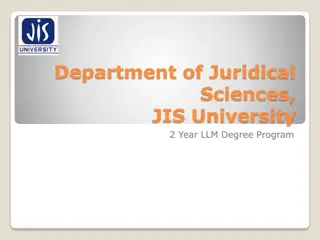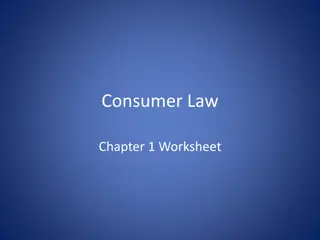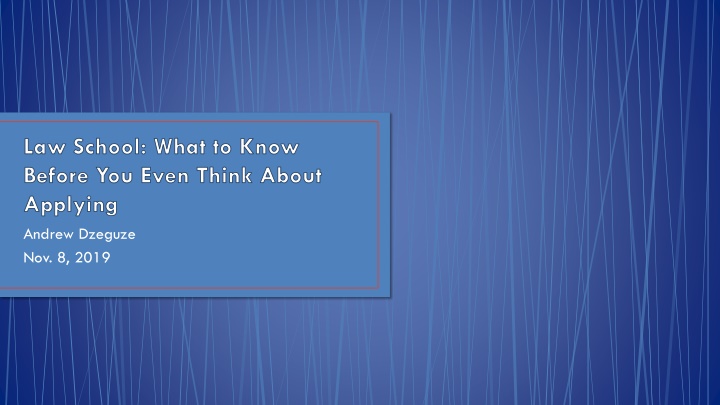
Key Insights Before Considering Law School
Discover essential considerations before exploring law school, including the need for a law degree, career paths, and self-reflection aspects to guide your decision-making process effectively.
Download Presentation

Please find below an Image/Link to download the presentation.
The content on the website is provided AS IS for your information and personal use only. It may not be sold, licensed, or shared on other websites without obtaining consent from the author. If you encounter any issues during the download, it is possible that the publisher has removed the file from their server.
You are allowed to download the files provided on this website for personal or commercial use, subject to the condition that they are used lawfully. All files are the property of their respective owners.
The content on the website is provided AS IS for your information and personal use only. It may not be sold, licensed, or shared on other websites without obtaining consent from the author.
E N D
Presentation Transcript
Law School: What to Know Before You Even Think About Applying Andrew Dzeguze Nov. 8, 2019
Why Law School? Can t take the Bar Exam in most places without it that s really only thing graduating ensures you can do So if your calling doesn t require bar admission think about if you want to do it What you don t need a law degree for: Business Politics Public Policy Humanitarian Efforts To make a lot of $$$$$$$$$$$$$$$ To make a difference To convince yourself or your parents you are living up to your potential To avoid things you don t want to do like sales, politics or running a business (because you may have to do all of these anyways, and will do some)
Why Law School (Part II) What you do need a law degree for: To appear in court To represent clients in legal proceedings To teach in law schools To become a judge in most cases What lawyers basically do (we ll talk more about how later): Solve a particular type of problem using a limited set of materials with a greater of lesser degree of creativity Advise clients to try and avoid getting into legal problems in the first place Help clients comply with various statutory and regulatory requirements like quarterly SEC filings, taxes, real estate transactions, FDA compliance, business incorporation other professionals may be involved but lawyers do this often
Before You Even Think Abut the LSAT/Applying Investigation and Self-Reflection TALK TO LAWYERS (PLURAL!!!!) Talk to your pre-law advisor, whether or not they have a JD may be able to refer you Family, friends, friends of friends you probably know someone you can talk to Informational Interviews, Panel Discussions, Shadowing all help (and can be good networking) Internships are great if you can get them (can be difficult before law school) We will have at least one panel in the Spring Reflect on your skills and how they track what lawyers do (we ll talk more about what they do later) What are you good at/what do you like to do What do you think you would want to do What are your values Career Development Office can help with this find your strengths and opportunities for growth
Applying to Law School Steps in Your Control Right Now Law schools care first and foremost about your GPA and your LSAT scores, and would like you to be well-rounded too Median GPA at ASU 2019: 3.8 Median LSAT: 164 (out of 180) Median GPA at UA 2019: 3.7 Median LSAT: 161 Spread at both is from low 150s to high 160s on LSAT, 3.0-4.0 GPA LSAT tests two things Reading and Logic and has a writing sample Any reading and critical thinking intensive major (Humanities/Soc. Science) is good for reading Logic courses through Philosophy Department, Math (esp. proof based higher math) and logic puzzles/games can help with logic a lot Analytical writing (making and supporting thesis statements with evidence) is what lawyers do so classes that require this are helpful Unusual majors, significant contributions to school/community, extracurriculars and great recommendations may all matter if you are a marginal candidate or applying to elite school
THE LSAT and LSAC The LSAT is administered by Law School Admissions Council (LSAC) Takes a half-day, is not currently offered in Flagstaff Similar to SAT but swaps logic for math (and some will now let you take GRE instead) Generates a single score from 120-180, mean is typically 150 or so but top schools are looking for 160-175 Some law schools (UA/ASU) will just take top score if you take it more than once, others average it have to check with each school LSAT sample questions can be found at lsac.org, prep of a wide variety is available online and in person biggest hurdle for most is logic/analytical reasoning Each test costs $200 and sending reports is not included
CAS LSACs Side Hustle LSAC also runs the Credential Assembly Service (CAS), and while you can take LSAT without CAS, LSAC won t send official score report to schools (required) without it You have to upload transcripts, get letter of recommendations and put in a lot of personal information somewhat similar to applying for bar Can access school applications through CAS and use it for some information, but schools may require supplemental materials (esp. elite schools) CAS costs $195 for a 5 year plan, each school report is $45 (there is a $10 discount is you bundle LSAT, CAS and 1 report ($430) and a $15 discount if you do 6 reports ($650))
Paying for Law School Law School is Expensive always has been Most schools don t have much in the way of scholarships/grants, what they have doesn t cover close to full cost Student loans will pick up difference but most public interest jobs don t pay enough to cover normal repayment plan My loans were almost as much as my mortgage payment and I had a relatively low debt level (45k) You can easily run up 80-150k in debt if you aren t careful Can use Income Based Repayment, Public Service Loan Forgiveness to reduce impact in short term but PSLF eligible jobs aren t that common in law and IBR is still a significant amount of money a month (200-300/month if your income is in the 50-60k range)
Which Type of Law School Should YOU Apply to? Practical Skill Oriented May have more focus on skills courses, clinics and moot court competition Typically graduates wind up working in community they graduate from Academically oriented (Ivies, top public schools affiliated with Tier 1 Research Schools) More likely to emphasize theory, appellate law, jurisprudence and may generate more research (hard to measure) Many graduates become judicial clerks or work at major firms, at least initially Specialist schools Focus on one or more area of law, offering certification of expertise or advanced degrees (IP, Tax, Environmental Law, Government Contracting) May be a program at either practical or academic schools as well
THE T-14 SUPER ELITE LAW SCHOOLS US News & World Reports Ranks all schools T-14 is pretty well fixed (or at least 1-12) Harvard, Yale, Stanford are typically 1-3 in some order and produce most judicial clerks, BigLaw hires (top 125 Law Firms by size/billings) and law professors Others include U Chicago, Columbia, NYU, Penn, UVa, Michigan, Duke, Northwestern, Berkeley, Cornell, Georgetown Most have median LSATs in the high 160s/170s, GPA in the 4.0 range Doesn t make them better lawyers but it is undeniable they are seen as better schools by most potential employers UA, ASU are both top 30 programs
Where to Apply Who are you/what do you want to do? Where do you want to live? Is there a field you definitely want to pursue? Where did people you want to emulate go to school? Then think about how your scores stack up
LAW SCHOOL RESEARCH MATERIALS USNWR is a composite ranking linked to things like LSAT/GPA, academic reputation surveys and research but it isn t always the information you need Every school has to turn over its bar passage information to the ABA to remain credentialed, most also publish job placement numbers (ABA/NALP forms). Break down how many jobs but also what kind Schools sometimes look to boost numbers, only have to report who they have heard from Most NALP/ABA forms are at school websites if you know what to look for Consider taking an unannounced visit especially near the end of a term TALK TO LAWYERS ABOUT ANY SCHOOL YOU ARE CONSIDERING!
UA/NAU 3+3 Program Part of Trend Do 90 units at NAU, including all major requirements, in 3 years If you have a 3.3 GPA, median LSAT at UA (typically 161 or higher) can be admitted to UA LAW 1styear at UA becomes a year of electives at NAU to get your BA/BS Requires clear focus and careful planning, especially if your major has both writing and methods pre-requisites to capstone
Law School General Course of Study First year is almost entirely core subjects that will be on bar exam - torts, property, civil procedure, criminal law, contracts, constitutional law, evidence and legal writing/legal process are typical courses Second and third year (and fourth year for part time students) includes any core classes not taught in first year, electives that build on them and may be on bar exam advanced civil procedure, criminal procedure, business law There is a consensus the last 2 years leave a lot of room for padding, but many students also get involved in public service, take critical internships or write scholarship they wouldn t be able to under shorter system
Teaching Approaches in US Law Schools For over 100 years, have primarily used case method students read books made up of cases that illustrate a point of law, sometimes with a statutory supplement Cases are typically briefed by students, boiled down to IRAC or FIRAC (Facts Issues Rule Analysis Conclusion) Cases tend to read this way too, although they often state the conclusion at the front too Many teachers use Socratic Method as illustrated in The Paper Chase forcing discussion through questioning students individually Has more to do with conception of law as litigation than anything else Can be a good skill to have in court, but of limited applicability
LAW SCHOOL GRADING/CLASS RANK Most law schools use a curve, assign very few A s (and may have a designation for the top score) Interestingly, very elite schools don t may just have pass/high pass Some schools have gotten away from curving or reset curve to be more generous (no Fs required/only top end is really curved) Traditionally most core courses grade was based just on one or two exams issue spotter tests covering the whole semester Practical skills classes tend to have exercises but may not count in GPA Some are getting away from test as all or nothing but others justify as a form of bar prep Most schools also rank every student, report that information to any employer who asks for it Class rank can determine placement on law review, eligibility for certain interviews and Latin honors at graduation
How to Stand out in Law School Law Review Every school has one or more law journals. Some firms require people to have been on journal to hire (often also limit to certain class rank) 2 and 3Ls select articles, review each line and every authority cited (cite check). Not quite peer review but nerve wracking for both students and authors not bad for young associates Moot Court Most schools require moot court at some point write a brief about a real or fictional case, present oral argument on it Schools field teams in moot court, go to competitions all over country Clinical Education Students can learn to handle everything from client intake to dispute resolution. Typically working with people who can t afford representation Can include landlord-tenant, homelessness, tech start ups, criminal appeals, anything else school values Externships Judges and some government agencies call internships externships at graduate level Short term, typically don t lead to full time jobs but can help/look good on resume
Getting a Job in School OCI and Summer Associates In the hierarchy of law school, you are told to shoot for BigLaw (large firms who pay the most, rep big corporations) Another prestigious path is Government service (DOJ, state equivalents especially) These employers know they need X lawyers in 2-3 years, are looking to use summer jobs as long term interview these are want hires Each fall and spring, firms and agencies will come to do On-Campus Interviews Higher ranked the school, more firms that come (location matters too) Higher ranked the student, more OCIs you are likely to get 15-30 minute screeners, if you do well get callback/flyback full day interview Can lead to summer associateship for 1L or 2L, job offer for 3L OCI is not only path to employment just the one schools tend to emphasize/glamorize Most other jobs will be with small firms/ need hires Networking is critical (just like everywhere else)
Admission and Discipline Getting the degree is a ticket to be eligible to sit the state bar in most cases, but it is not a guarantee of admission to the bar Most students are doing some prep for the bar exam before they leave school Can take the Multistate Professional Responsibility Exam (mandatory ethics test) before you graduate Bar Review a few schools have bar prep courses, most don t. People pay thousands of dollars for Bar/Bri, similar services Have to compile significant information for background check, including fingerprints, criminal history and driving records All of these steps take money, and just entitle you to sit the actual test
The Bar Exam Multiple day mental endurance test Almost all states use the Multistate Bar Examination as one component multiple choice test on core legal questions May also have a supplemental multiple-choice section, or will cover particular subjects in essays Essays can include both practical examinations and issue spotter essays California is 3 days Day 1 and 3 are essays and performance tests , Day 2 is MBE California covers 17 subjects never test all, but never say what is left off Arizona is UBE MBE, MEE, MPT but also has an Arizona law course requirement UBE score can be transferred to any other state that has UBE, but just having score is not enough in most places
Bar Passage Rates Bar passage rates matter to law schools for ABA accreditation Part of why schools still teach like they do ABA just raised expectation to 75% passage within 2 years of graduation (will be a major issue in California and Florida) Generally Bar passage has declined in last 10 years UA was 83.8% for first time takers in 2010, ASU 89.2% In Summer 2018, UA was 73.1% and ASU 79.4% Repeat takers almost always do much worse So bad in Orgon law schools petitioned to lower cut line (pass rate) California had a vote amongst bar membership about lowering rejected UC Hastings (my alma mater) went from 81% in 2007 (86% in 1998) to 60% last year Some states (OK) have high passage rates, but they are exception 2 big factors are who is applying and how people learn vs. nature of bar
Formal Admission Bar passage is not the final hurdle still have to clear on moral character Some states require proof of insurance or limited practice (Oregon) If you meet all requirements and pay fee, get sworn in Admission to state bar allows admission to Federal bar Admission in one state allows admission on particular cases in other states, courts Admission carries with it submitting to authority and requirements of disciplining body either the bar association in a unified bar state or a separate state authority Arizona is a unified bar state, discipline is conducted by the Board of Governors and ultimately Arizona Supreme Court
Scope of Legal Employment First major divide in US is between people who handle disputes that might wind up in court (litigators) and those who try not to (transactional lawyers) This divide is formalized in other countries in UK barristers argue cases referred by solicitors, who do most other legal work. In US, can theoretically do both, but most people tend to focus on one side or the other Litigators tend to specialize in particular areas either on the nature of law (criminal v. civil) or case (personal injury, environmental , antitrust, intellectual property) Transactional work similarly tends to be specialized, and often has adversarial components but generally not actively litigating matters.
Types of Legal Employment Government employs attorneys at all levels in wide range of tasks from agency advisors to litigators at all levels In private practice, there tends to be a hierarchy in cities there will be at least a couple of large, general firms that tend to represent corporations and wealthy individuals Below that, will have a variety of firms, ranging in size and scope of practice generally the larger the city the broader range of interests Most attorneys wind up at some point as solo practitioners or small firms, tending to focus on areas that serve the needs of individuals Companies often have in-house counsel although lately those departments tend to have fewer and fewer lawyers and more paralegals
The Job Market: A Reality Check Bureau of Labor Statistics suggests we will produce more lawyers than new jobs for lawyers over the next 10 years Approx. 50K jobs total projected to be added over 10 years Approx. 38k JD grads each year system can t absorb all Temp/contract and non-JD jobs have grown as share of graduate employment Most grads who find work will be in small firms/solo practice at some point Lower pay, more business skills required Potentially higher job satisfaction Look at UA, ASU placement numbers Law Schools and OCI can make it feel like BigLaw is everyone s goal Pay is better, work is focused Hours are ridiculous a billable hour might take 2-3 hours of time (2400 billable = 10-12 hours a day 7 days a week) Pressure is to do more, move up or out
Some Sobering Considerations Depression, Anxiety and Loneliness are all found at higher rates with lawyers than in the general population Drinking is socialized, and excessive drinking is somewhat normalized especially at big firms and in litigation environments Drug abuse is more frequent than in the general population All of this may be correlative rather than causative, but worth considering Although women are more than of all law school students, women get hired, make partner and are appointed to judicial posts well below those rates Most minority groups are badly underrepresented in legal employment too Implicit bias is extremely common and explicit bias is not unusual





